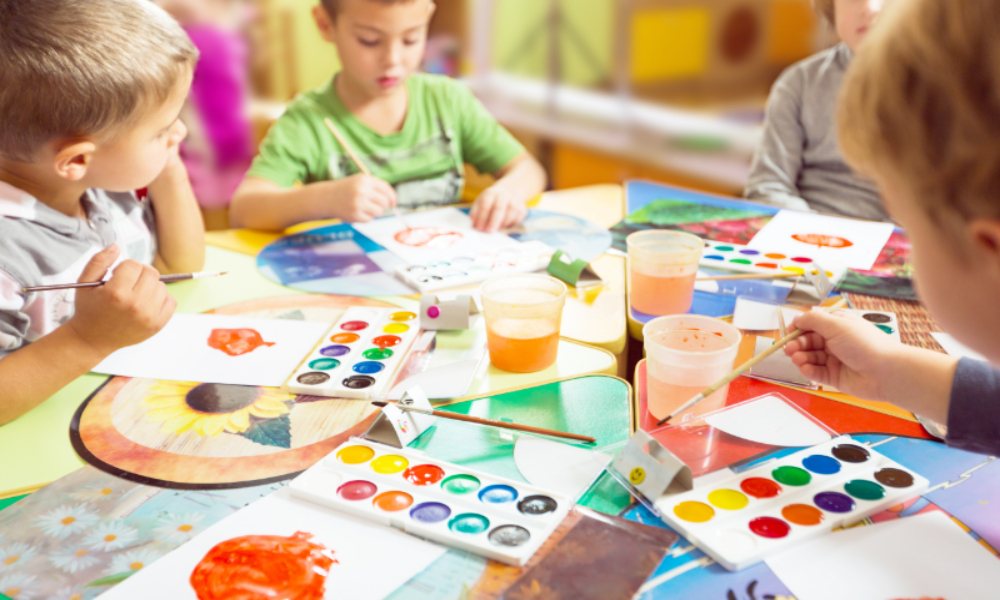What Parents Need to Know About Nursery Age Education in Private Preschools in Singapore

1. Understanding Nursery Age Education in Singapore
Regarding early childhood education, nursery age in Singapore typically refers to children aged three to four years old. Private preschools in Singapore offer structured learning environments that foster young children’s cognitive, social, and emotional development. Children are introduced to foundational concepts that prepare them for formal schooling at this crucial stage. Parents must be aware of the different approaches adopted by private preschools, as these can vary greatly. Private preschools often follow internationally recognised educational frameworks, which may offer a more global perspective.
2. The Importance of Age-Appropriate Learning
One of the critical features of private preschools in Singapore is the focus on age-appropriate learning. At nursery age, children benefit from a curriculum designed to suit their developmental needs. Activities are often hands-on, allowing children to explore concepts through play, sensory experiences, and peer interaction. By participating in these activities, children develop critical thinking and problem-solving skills essential for later success. Parents should ensure that the preschool they choose for their child tailors its curriculum to meet the specific needs of children in this age group.
3. Social and Emotional Growth in Private Preschools
Another vital aspect of nursery education is emphasising social and emotional growth. Nursery-age children are at a stage where they are learning to interact with others and express their feelings appropriately. Private preschools provide an environment where children can practise these skills in a supportive setting. Teachers in these preschools are trained to guide children in developing empathy, cooperation, and emotional regulation. Choosing a preschool that fosters a positive emotional climate is essential for parents, as this will significantly influence a child’s ability to thrive socially.
4. Kindergarten Readiness: Preparing for the Next Step
While nursery education is centred around play-based learning, it also plays a crucial role in preparing children for kindergarten. The skills children acquire during this period lay the foundation for more formal education at kindergarten age in Singapore, which starts at five years old. Private preschools often have comprehensive programmes that gradually introduce academic concepts such as early literacy and numeracy. However, these are introduced in a manner that complements the child’s natural curiosity, ensuring that learning remains enjoyable. As parents, it is crucial to select a preschool that balances academic preparation with the child’s overall well-being.
5. Language Development in Nursery Education
Language development is another critical component of nursery education in Singapore. Private preschools usually offer bilingual education, allowing children to learn English, Mandarin, or other languages. Children are highly receptive to new languages at nursery age, and exposure to a bilingual environment can significantly enhance their communication skills. Parents should look for private preschools that provide rich language experiences to support the child’s ability to communicate effectively and confidently in multiple languages.
6. The Role of Play in Learning
Play is at the heart of learning for nursery-age children. Private preschools in Singapore recognise the importance of play-based learning and incorporate it into their daily routines. Through play, children develop creativity, imagination, and cognitive abilities. Playtime also encourages exploration and experimentation, which are essential for intellectual growth. Whether through structured activities or free play, private preschools ensure that children are given ample opportunities to learn through play. Parents must select a preschool with a well-rounded, play-based curriculum to ensure their child’s overall development.
7. The Teacher-Child Ratio in Private Preschools
A key advantage of private preschools in Singapore is the favourable teacher-child ratio. Smaller class sizes allow teachers to provide individual attention to each child, which is crucial at the nursery age. With fewer children per teacher, educators can closely monitor each child’s progress and promptly address any areas of concern. For parents, this personalised attention is one of the main reasons for choosing a private preschool. It is essential to inquire about the class size and teacher qualifications when selecting a school for your child, as these factors significantly impact the quality of education.
8. Health and Safety Considerations
Health and safety are top priorities for any parent regarding nursery-age education. Private preschools in Singapore must meet stringent health and safety regulations to ensure the well-being of children. This includes maintaining a clean and safe environment, providing healthy meals, and ensuring all staff are trained in first aid. Parents should visit prospective preschools to assess their safety measures and ensure their child will be in a secure and nurturing environment. Additionally, private preschools may offer better resources and facilities, enhancing the overall learning experience.
Conclusion
Private preschools in Singapore offer a comprehensive and nurturing environment for nursery-age children. From age-appropriate learning to fostering emotional growth, these institutions play a vital role in preparing children for the next stage of their educational journey. When selecting a preschool, parents should consider factors such as curriculum, teacher-child ratios, language development, and health and safety standards to ensure the best possible start for their child’s education.
For more information, contact Odyssey – The Global Preschool today.












